The UK’s public broadcasters have issued a rallying cry to filmmakers as the industry emerges from the pandemic, highlighting their unique commissioning and rights processes compared to streaming platforms.
On a panel titled ‘The path ahead for the UK’s public film funds’, BBC Film director Rose Garnett explained the public bodies offer opportunities that are not available at private companies.
“The energy and dynamism and funding that streamers have brought in is really exciting, and has probably made many more people excited about a career in TV and film – that’s only a good thing,” added Garnett. “You watch Halston on Netflix and think ‘I’m so glad that’s in the world.’ But then I watch what we’re doing – only the BBC could make it, and only the BBC could broadcast it to that sheer cultural impact.”
Garnett cited Steve McQueen’s five-film Small Axe anthology as the kind of project that could only work at BBC Film; while also flagging up the new release model pioneered by BBC Film and the BFI in October last year, which broadcast seven independent UK titles on BBC Two following a shorter-than-usual broadcast window.
“It’s about retention of rights, which I think is an increasingly important space,” said Garnett of the advantage of working with the public bodies. “If you make something for the BBC, Channel 4 or the BFI, you still own what you’ve made.
“Talent are savvy enough to understand that different spaces will fit different projects.”
“We can take chances on projects that even Film4 and BBC, for understandable reasons can’t,” said Lizzie Francke, editor-at-large at the BFI Film Fund. “We don’t develop with an end user in mind; we’re very Catholic in that way as funders.
“It’s always interesting to me when you spend a lot of time on a project, then suddenly find that a certain streamer wants it. We’re putting our neck out, always.”
The UK’s public broadcasters have been the leading lights of the industry during the pandemic according to Film4 director Daniel Battsek.
“There’s been so much focus on how the pandemic has been so great for streamers, but it’s actually public broadcasters like the BBC and Channel 4 - the amazing work the BFI did to support independent film distribution and exhibition – that actually I think are the real heroes,” said Battsek.
Despite the increased prominence of streamers in production as well as distribution in recent years, Battsek said there will always be a place for public-funded product.
“It’s challenging, but it’s not an end game,” he said. “Public broadcasters and film organisations such as Film4, the BFI and BBC Film are perceived [by the streamers] to be a vital part. They need us. And filmmakers still feel like we have a very important role to play, in terms of the partnership we’re able to deliver, and the development skills we’re able to bring to the party.”
Ghost generation
Many arts spaces, including cinemas, theatres and music venues, have been closed for much of the past year. This has meant a change of focus for the public bodies, Garnett said.
“Theatres have been dark, but voices haven’t gone silent,” said Garnett. “Just look how much new writing migrated online, and how many authors organised space for themselves. Our job became to find them in the space that they were existing in.
“It’s that ghost generation of the past year – we keep reminding them that this is a great career, full of possibility.”
“It’s also interesting seeing people come through who may be more mature [in age], and who may have felt outsiders in the industry until the last couple of years,” added Francke.
Addressing the significant social movements of the past year including Black Lives Matter, Garnett issued caution around how the public bodies describe themselves.
“You have to be really thoughtful about words like ‘bold’ and ‘progressive’, because I don’t think we are bold and progressive,” she said. “We’re representing the UK in its best self and best form.
“Black Lives Matter was a moral human rights movement. Everybody in independent British film has been, and has to keep, putting inclusion at its centre. It’s the moral no-brainer; it’s also culturally the most exciting space.”
“The [broader UK] industry – as so much of the civilisation we live in – is not well-adjusted in terms of diversity,” said Battsek. “Mostly the industry is aimed at a particular direction; it’s going to take quite a bit of education to change some of those preconceived conditions.”
All three panellists said they are “waiting to see” regarding attendance at Cannes Film Festival in July. “Festivals are doing an increasingly good job of being virtual or some sort of hybrid,” said Battsek. “I desperately want to go [to Cannes], but the circumstances would need to feel safe, and that it required one’s attendance.”






![The Brightest SunScreen[Courtesy HKIFF]](https://d1nslcd7m2225b.cloudfront.net/Pictures/274x183/3/5/0/1448350_thebrightestsunscreencourtesyhkiff_312678.jpg)













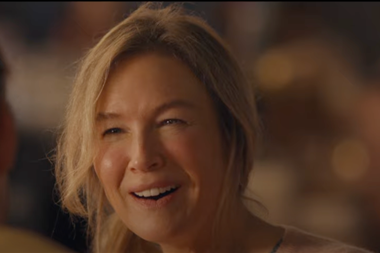
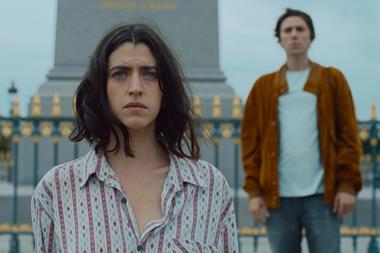
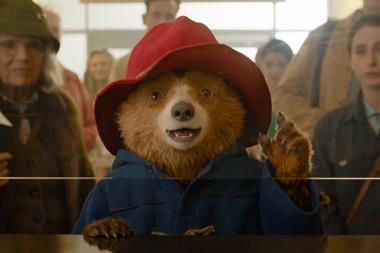


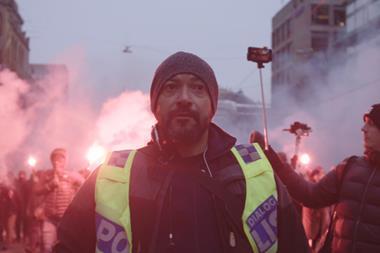


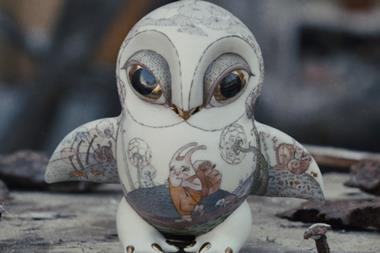






No comments yet